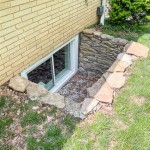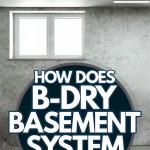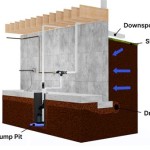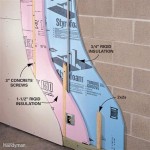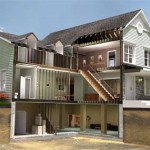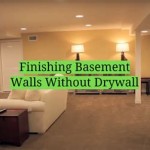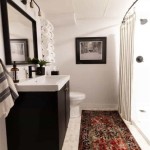Best Flooring for Wet Basement: Essential Considerations
Transforming a damp basement into a functional and inviting space requires careful consideration of flooring options. When moisture is a factor, choosing the right flooring can prevent mold growth, water damage, and other costly issues.
1. Moisture Resistance and Durability
The primary consideration is moisture resistance. Opt for materials that are specifically designed to withstand moisture, such as:
- Vinyl: Available in both sheet and tile forms, vinyl flooring provides excellent water resistance and durability.
- Ceramic or Porcelain Tile: These tiles are non-porous and highly water-resistant, making them ideal for wet basements.
- Laminate: With a water-resistant core, laminate flooring offers a budget-friendly option that can withstand occasional moisture.
2. Installation and Maintenance
In damp environments, proper installation and maintenance are crucial. Choose flooring that is easy to install and requires minimal upkeep:
- Click-Lock Vinyl: This self-locking system allows for quick and easy installation without adhesives.
- Interlocking Tiles: Tiles that interlock without glue or nails reduce the risk of water seepage through seams.
- Waterproof Underlayment: A waterproof underlayment provides an additional layer of protection against moisture.
3. Appearance and Style
Even in a wet basement, style and aesthetics matter. Consider flooring options that complement your décor and create a welcoming atmosphere:
- Luxury Vinyl Tiles (LVT): LVT mimics the look of natural materials like wood and stone, providing a stylish and moisture-resistant solution.
- Patterned Ceramic Tiles: Create visual interest and break up the monotony of a damp basement with patterned ceramic tiles.
- Waterproof Carpet Tiles: For a softer touch, choose waterproof carpet tiles that can be replaced individually if damaged.
4. Vapor Barriers and Ventilation
To prevent excess moisture from seeping into the flooring, a vapor barrier is essential. Install a polyethylene vapor barrier beneath the flooring material to block moisture.
Additionally, ensure adequate ventilation by installing dehumidifiers or exhaust fans to control humidity levels and prevent mold growth.
5. Professional Installation
For optimal performance and longevity, consider hiring a professional installer. They can assess the moisture levels, prepare the subfloor, and install the flooring correctly to prevent water damage and ensure a moisture-resistant floor.
Conclusion
Choosing the best flooring for a wet basement requires careful consideration of moisture resistance, durability, installation, appearance, and vapor barriers. By selecting the right materials and following the proper installation techniques, you can transform your damp basement into a functional and inviting space.

Wet Basement Flooring Options With Built In Vapor Barrier

Thermaldry Basement Flooring Systems Waterproof

Best Flooring For A Wet Basement Family Room The Money Pit

Best Flooring For Basements That Flood Try Waterproof Vinyl

Basement Flooring 101 Bob Vila

Wet Basement Flooring Options With Built In Vapor Barrier

Thermaldry Basement Flooring Systems Waterproof

The Best Basement Flooring Options For Your Home

Wet Basement Flooring Options With Built In Vapor Barrier

Waterproof Flooring For Basements Home Pros
See Also

